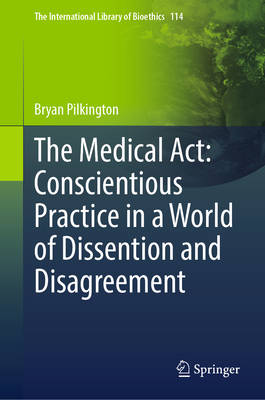
- Retrait gratuit dans votre magasin Club
- 7.000.000 titres dans notre catalogue
- Payer en toute sécurité
- Toujours un magasin près de chez vous
- Retrait gratuit dans votre magasin Club
- 7.000.0000 titres dans notre catalogue
- Payer en toute sécurité
- Toujours un magasin près de chez vous
The Medical Act: Conscientious Practice in a World of Dissention and Disagreement
Bryan PilkingtonDescription
This book takes a step back from the usual debates over conscience in medicine and asks whether the conscientious practice of individual healthcare practitioners is coherent and acceptable on its own. This book argues in the affirmative and describes how we move forward in light of the deep moral and professional disagreement that exists. The book explains why the current framing within the debate is mistaken and offers an alternative framing. In so doing, the author discusses disagreement within healthcare professions, the distinction between conscience protectors and conscience dissenters, and how to properly understand the role of religious and personal philosophical reasons in practicing conscientiously. The book articulates the key confusion in much of the current debate - that disagreement over conscience in medicine is due to religious or personal philosophical beliefs - and rejects it. The book then, positively, argues that differing accounts of moral responsibility are at the root of this disagreement, opening up new avenues for dialogue and potentially fruitful collaborations. The book concludes with a much needed and basic discussion of what is going on when practical judgements are made in healthcare: the medical act. This book is of great interest to both advanced undergraduate and graduate students in philosophy, bioethics, and medicine, as well as researchers, physicians, and health professionals.
Spécifications
Parties prenantes
- Auteur(s) :
- Editeur:
Contenu
- Nombre de pages :
- 150
- Langue:
- Anglais
- Collection :
- Tome:
- n° 114
Caractéristiques
- EAN:
- 9783032000477
- Date de parution :
- 18-10-25
- Format:
- Livre relié
- Format numérique:
- Genaaid
- Dimensions :
- 155 mm x 235 mm

Les avis
Nous publions uniquement les avis qui respectent les conditions requises. Consultez nos conditions pour les avis.






